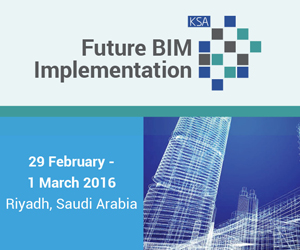Asia > South-Eastern Asia > Indonesia > PT INTI to use 'sixth wave of innovation' to develop new business areas
Indonesia: PT INTI to use 'sixth wave of innovation' to develop new business areas
2014/01/02
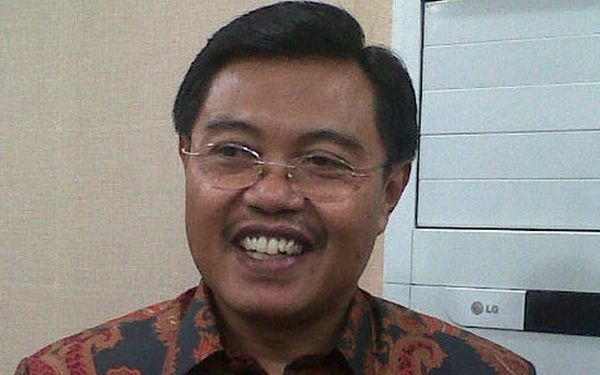
How did PT INTI evolve from a purely manufacturing based company into an industry focused on systems solutions and integration in technology?
PT Industri Telekomunikasi Indonesia (Persero), as well known as INTI, was founded in 1966 as the result of the cooperation between Perusahaan Negara (PN) Telecommunications and Siemens AG. In 1968, this cooperation led to the establishment of PTT (Factory Telephone & Telegraph), which was part of LPP Postel (Post and Telecommunication Research & Development).
In 1974, this part of LPP Postel was separated into a limited liability company under the auspices of the Directorate General of Post & Telecommunication – INTI.
In early 1970s, INTI was known as a telephone and radio transmitter assembly manufacturer. We developed our capacity as a producer of digital central telephones (STDI-INTI) in early 1980’s. Through STDI and STDI-K, INTI has been successful in digitalizing all telecommunication systems in Indonesia. The broader public got to know INTI because we produced almost 80% of all the telephone handsets made in Indonesia.
In early 1990s, INTI built up excellence in construction, engineering, research and development, and we became the prime mover in developing both fixed and mobile telecommunication networks. We installed 60% of the domestic network system, which accounts for additional than 5 million fixed connections, 2,500 base transceiver station (BTS) and 4 million mobile service switching center (MSC) mobile connections.
Starting from 2000, INTI has been building its capacity in the data technology (IT) area with the Infocom System & Technology Integrator (ISTI). We focused on developing our capability in installation, test and commissioning, integration, and next sales services.
Nowadays, our priority is to expand our capacity in order to be able to meet our customers’ expectations and prepare the company for the next. We have established a roadmap to enter the business of engineering solutions, not only as a system integrator. We as well focus on genuine products and manufacturing, mobile applications and content, maintenance, managed services, and IT services.
Furthermore, we are currently working on two projects that represent the company’s footprint to build new capabilities and provide smart solutions for our customers. The initial one is a strategic project in fiber-optic deployment for PT Telkom, called the Trade-In Trade-Off (TITO) project. The second one is an oil monitoring system for PT Pertamina.
In order to remain competitive, technology-based companies constantly strive to remain ahead of the curve with innovative products. What is your strategy to keep up to date with technology trends and create price for smart customers? In your opinion, what are the key factors behind INTI’s success?
Since the establishment of INTI as a national-owned company in 1974, we have focused our core business in the field of telecommunications and IT. In a way, INTI continued to develop the telecommunications industry through cooperation with various technology owners as a way of technology transfer.
Not surprisingly, next we teamed up with Siemens AG and other international companies since 1966 – a moment at the same time as INTI was partnered as member of PN Telekomunikasi with Telkom – INTI became the initial phone manufacturer with the majority advanced technology at the time, throughout Indonesia.
But as we know, technology is constantly evolving and INTI could not stand still with the same portfolio we used four decades ago. We had to evolve and expand our operations in order to be able to compete successfully with other players in the industry. In addition to maintaining the existing revenue stream from Telkom, INTI is striving to increase its client portfolio by taking chance of other opportunities in different lines of business, such as: TITO and FTTH, smart fuel & related business, system integrator, maintenance & managed services, smart services, mobile services, mobile devices & contents, smart devices (genuine products), and next INTI\\\'s smart solutions.
As we are striving to expand our business and achieve our goals in terms of diversifying our business portfolio, we want to maintain our existing market and products which ensure increase and high profitability for INTI, such as our business in Telkom’s market and cellular operators sectors, inclunding the defense and energy sector (monitoring and control system on fuel sales).
An extra initiative in our business strategy is to significantly grow new business areas such as smart solutions. In fact, we have by presently applied smart solutions in one integrated concept. This concept describes everything from the ‘sixth wave of innovation’ point of view, which believes that the next innovation will focus on resource efficiency, characterized by ‘waste is opportunity’, ‘bits are world and atoms are local’, ‘selling services not products’, and ‘if we can’t find the answer, look to nature’.
This characteristic pushes people to develop solutions in smart ways to accommodate needs, which come up as a result of resource scarcity. INTI considers this situation as an opportunity to fit up its products portfolio with smart solutions in several sectors, inclunding health, energy, defense, government, and retail business.
Following Indonesia’s exponential economic increase over the completed years, the government is pushing for the revival of the national defense industry to ensure the sovereignty of the country. How can INTI contribute to the development of defense-oriented electronic products?
INTI contributes to the development of the defense industry in accordance with our capability and competence in telecommunications and data technology.
We have been taking part in the modernization of the communication device of Tentara Nasional Indonesia (TNI), particularly in the design and installation of microwave devices to support the communication of data, voice, and video that connects the TNI headquarters with some units available in the area.
INTI has been taking a role in the development of the HF communication system used by the Rapid Reaction Strike Force (PPRC). Furthermore, we have been working on coastal surveillance with the Indonesian Institute of Sciences (LIPI) to develop products for the purposes of monitoring ship traffic and maritime surveillance operations that provide useful support to the Navy.
INTI has as well been working closely with the Research and Development Department of the Navy, where we have successfully developed an anti-bomb jammer device, an improvised explosive device (IED) jammer. Additionally, we take an active role in the preparation of the roadmap for the National Defense Industry and the Ministry of Defense programs, particularly in non-defense equipment in the field of command, control, communications, computers, intelligence, surveillance, and recognition (C4ISR).
Based on our capabilities and competencies, our objective is to be one of the leading integrators for radar products in the defense industry. In addition to the above, INTI is as well ready to worktogether with other national defense companies, particularly manufacturers of defense equipment dimension of land, sea, and air.
We combined our capability and competence in research with LIPI to produce an advanced technology-based product made in Indonesia, namely the Indonesia Surveillance Radar (ISRA). This product has a number of technological advantages compared to similar products. ISRA uses the new technology in the field of radar (FM-CW) with software that can be reconfigured, which means that the technology applied in this product can be developed as needed. In fact, ISRA is not easy to spot by other active radar located within a radius of one kilometer.
Beside our cooperation with LIPI, in order to contribute further to the local defense industry, we collaborate with several international research institutions to develop ground control intercept radar, program transfer of technology radar, and a progressive manufacturing plan.
The government recently announced plans to merge PT LEN and PT INTI, the two major national-owned electronics manufacturers. What evolution has been made in that respect?
The consultants have concluded studies regarding the merger of national-owned enterprises (SOEs) and we are presently waiting for the next steps to be taken. We are still waiting for the best decision to be made and hope it will provide the basis for the best shareholder\\\'s actions.
In accordance to the government regulation No. 43/2005 on the merger, amalgamation, and takeover of SOEs, great purposes and goals have to be met. Firstly, the plan must increase the efficiency, transparency and professionalism in order to nourish the relevant SOEs. Secondly, it must increase the performance and price of SOEs. Thirdly, it has to provide optimum benefits to the national in the form of dividend and taxes. Fourthly, the incorporation of the corporation must be able to produce quality products and services at a competitive price for the consumers.
With over 700 employees, what is PT INTI’s commitment to human capacity building? What is your approach in terms of corporate social responsibility?
Currently, we have 726 employees at INTI, without counting the people that we subcontract and outsource for different projects. In terms of the education level of our staff, we have 336 high school graduates, 53 diploma holders, 289 bachelor graduates and 35 master degree holders.
As part of our commitment to the capacity and mind building of our human capital, we have established the INTI Academy. This program is aimed at reinforcing basic corporate culture and supporting the company\\\'s performance. Additionally, we organize monthly lectures with professional lecturers. Furthermore, we have a compulsory eight hours employee training per year, inclunding job-specific training specifically adapted to each division.
In terms of corporate social responsibility, INTI has created a appropriate program (Kemitraan dan Bina Lingkungan) for which we allocated a budget of Rp 150m or 0,92% of the company’s profit in 2012. We focus our program mainly on areas related to education, health, training, environment, public welfare, and so on.
What are the major benefits you draw from your strategic partnerships with US based companies and their expertise in the field of the new technologies development?
We cooperate with several U.S.-based companies, such as Northrop Grunman (radar cooperation) and Harris (communication system). Our strategic partners from the U.S. are supporting us with knowledge transfer in the field of new technologies development. Under their supervision we have been able to develop new subsystems.
Furthermore, we can draw from the U.S. expertise in military technologies in order to contribute to the national defense industry in accordance with our competencies and capabilities. For example, we are working together with LIPI to develop radar surveillance system (ISRA) to help monitoring the national coastal areas.
- Related Articles
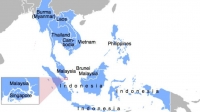
Towards A Transboundary Haze-Free ASEAN By 2020
2015/11/16 To sustain the efforts of a transboundary haze-free ASEAN, it is significant to remain vigilant and be prepared early enough to prevent any occurrence of fires. This calls for better early warning systems and swift deployment of fire-fighting resources even before the fires starts.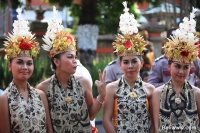
The financial and political crises of 1998 brought about significant changes in Indonesia’s corporate landscape.
2015/05/15 The financial and political crises of 1998 brought about significant changes in Indonesia’s corporate landscape. The proportion of Indonesian firms with political connections remains relatively high but is declining, as modes of political engagement are becoming increasingly varied. Indonesian walk pass the trade monitor at Indonesia Stock Exchange in Jakarta, Indonesia.
The World Bank fails to credit the intelligence of the world’s poor
2015/01/31 At the same time as a statement by the world’s most influential development agency provides evidence that a lot of of its staff are “biased” in their perceptions of the poor and their needs, one may expect eyebrows to be raised. At the same time as the president of that institution — the World Bank, no less — acknowledges the flaw and goes on to call for “measures to mitigate these biases, such as additional rigorously diagnosing the mindsets of the people we are trying to help”, jaws should be dropping.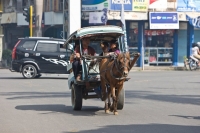
Indonesia Year in Review 2013
2014/03/05 The economy in Indonesia rounded out 2013 by posting relatively solid increase, despite a decline in world commodity prices and an increase in energy imports. The coming year’s performance is expected to be in high single digits, but risks include a tightening of external financing conditions and a softening of private consumption. Estimates have put Indonesia’s year-end increase rate at between 5.8% and just over 6%, a figure the government expects will be surpassed in 2014, with GDP estimate to expand by 6-6.4%. Exports are projected to rebound, while dependence on imported energy is set to decline as domestic oil and gas production expands, and biofuels usage climbs.
Indonesian Government put into force a full ban on raw mineral ore exports
2014/03/03 In January 2014, the Indonesian Government put into force a full ban on raw mineral ore exports as stipulated by the 2009 Mining Law. In an interview with United World, the Vice Minister of Energy & Mineral Resources Susilo Siswoutomo explains how the implementation of this act will presently induce players in the industry to add price to production,
- Indonesia News
-
- INDONESIA: Indonesia Eases Foreign Ownership in "Big-Bang" Liberalisation
- INDONESIA: Empowering Young Women Through Farming in East Nusa Tenggara
- INDONESIA: Govt, Private Sector in Pilot Project for Fire Prevention Procedures
- AZERBAIJAN: Azerbaijan to become export gateway for Indonesian products to European market
- INDONESIA: Indonesia Central Bank Cuts Interest Rate For Second Month
- INDONESIA: E-commerce expansion primed for Indonesian market
- Trending Articles
-
- ABIDJAN: Cote d’Ivoire to re-emerge as a tourism destination
- MOZAMBIQUE: Mozambique seeks investors interested in graphite processing in Ancuabe
- EGYPT: PACT Real Estate Group PACT to create ‘new destinations for new generations’ in Egypt
- AZERBAIJAN: Fitch says Azerbaijan among countries benefiting most from commodity boom
- AFRICA: Ending Africa’s Culture of Impunity
- CASABLANCA: REITs to drive commercial real estate growth in Morocco




.gif?1356023993)
